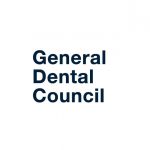The General Dental Council (GDC) has published its annual Registration and Fitness to Practise statistical reports for 2022.
Both reports include comparison data from previous years to better show any trends or changes over time.
The Registration report shows that, overall, the numbers of registered dental professionals have remained stable, with a 0.6% increase compared to 2021. In December 2022 there were 44,000 dentists and 71,000 dental care professionals (DCP) on our registers.
There were 7,384 additions to the registers in 2022 (1,968 dentists and 5,406 DCPs). Forty-six percent of new dentists who joined the register in 2022 qualified outside of the UK and there were 160 new dentists who joined the register through the Overseas Registration Exam (ORE) route, which restarted in 2022.
Half of all newly registered Dental Hygienists and Dental Therapists were not UK qualified. These were almost all overseas qualified dentists who had applied for registration as a hygienist and/or therapist.
The Fitness to Practise report shows that the GDC received 1,264 concerns in 2022. (down 7% compared to 2021). On average, of every 100 cases the GDC received, 84% were closed through assessment and case examiner reviews, with only 16% progressing to a practice committee hearing. The GDC held 84 Practice Committee hearings in 2022 (31 fewer than in 2021, down 27%). There were 18 dental professionals erased from the GDC’s registers in 2022 following a Practice Committee hearing, compared to 17 in 2021 and 25 in 2020.
The report also shows that dental professionals who live in London or the South East are more likely to have a fitness to practise concern raised against them, compared to all other regions of the UK.
John Cullinane, Executive Director, Fitness to Practice, said: “These reports offer an interesting summary of two important facets of the GDC’s regulatory remit. This is the second year we have published EDI data in the context of fitness to practise and we continue to look at how we can use this in our work to ensure there is no discrimination in any of our processes.
“What we do know is that EDI analysis is complex and, I would ask you not to use the data in our reports in isolation to draw conclusions as many other factors may be relevant, such as practice location, size or local demographics.”
The full reports can be read online on the GDC’s website.









